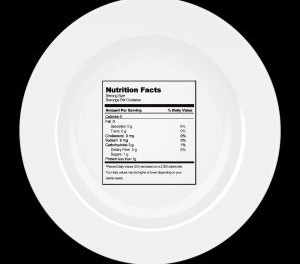 Society increases the stress and challenges that women face to find and maintain a healthy weight. Healthy probably doesn’t mean model stick thin, but it also doesn’t mean being able to eat at fast food restaurants each week or grab high carbohydrate snacks on the way to work in the morning.
Society increases the stress and challenges that women face to find and maintain a healthy weight. Healthy probably doesn’t mean model stick thin, but it also doesn’t mean being able to eat at fast food restaurants each week or grab high carbohydrate snacks on the way to work in the morning.
There is a consistent and daily struggle between what the scale says in the morning and the growling stomach or feelings of deprivation while co-workers are eating the birthday cake or chowing down on the donuts.
The first step to finding a healthy weight is to acknowledge that achieving the perfect body is out of the question, unless you have a personal chef, personal trainer and hours to workout each day. And, even with those benefits, most stars and models are air brushed in print and film to improve their bodies or their faces.
So, put away the desire or thought that you will look like Cindy Crawford after only 2 weeks of working out at the gym and settle into an image your perfection looks like.
A healthy weight is one that reduces your risk for disease and illness, reduces the weight load on your knees and hips and improves your energy level. For some women that may mean losing 10 pounds and for others it can mean losing 100 pounds. What ever the goal for weight loss, it’s also important to remember that the weight gain was accomplished over a period of time and the weight loss will be the same. Weight loss will not be instantaneous. And quick weight loss is more likely to be gained back within a couple of months.
You can estimate what a healthy weight will be by using a combination of what you look like in the mirror, the numbers on the scale and your BMI.
BMI stands for Body Mass Index and is a mathematical equation that allows you to compare your height to weight against those of your peers using a double digit number. You can find a calculator to get your BMI, and the ranges that identify whether you are underweight, normal or overweight by doing a Google search.
However, the BMI does have some limitations, not the least of which is that people with a high body mass (or who weigh a lot) will rank higher even if the weight they are carrying is muscle weight and not fat.
This is why it is important to take into account each of the factors to achieve a healthy weight for your particular height.
 Achieving that healthy weight can be accomplished through a combination of healthy eating habits, low carbohydrate foods, low glycemic index foods and at least 30 minutes of exercise five times a week. The exercise should incorporate weight training to increase your muscle development in your upper body and core which will increase your calorie burn, give you a more sleek appearance and improve your self-esteem and balance.
Achieving that healthy weight can be accomplished through a combination of healthy eating habits, low carbohydrate foods, low glycemic index foods and at least 30 minutes of exercise five times a week. The exercise should incorporate weight training to increase your muscle development in your upper body and core which will increase your calorie burn, give you a more sleek appearance and improve your self-esteem and balance.
Cardiovascular exercises can be done in short spurts of 10 minutes throughout the day if you are short on time. These shorter spurts will keep your metabolism running smoothly all day, and will help to improve your cardiovascular fitness.
Pay attention to the foods you eat from breakfast through bedtime and try to stop eating by 7 pm each night. Our body will start to burn more fat when you do some intermittent fasting. This can be accomplished by eating your last morsel at 7 pm and not eating anything else until lunch the next day. It’s a short fast that is broken at lunch. You may want to consider doing this when you are busy in the morning and not likely to snack on something bad before lunch!
Your healthy weight will be different from mine because I may be taller or shorter than you, I may have more or less muscle mass than you and I may have different goals than you. Take a strong look at who you are, what you can live with and try to keep your weight limits within the normal range of the BMI.


Leave a Reply